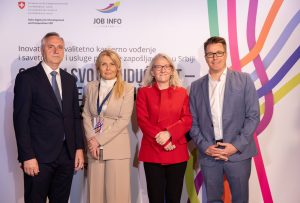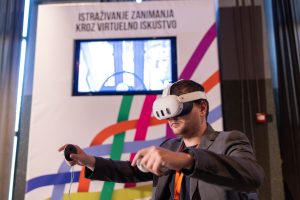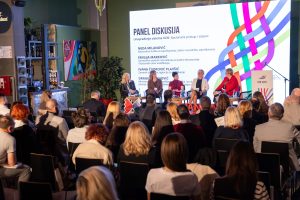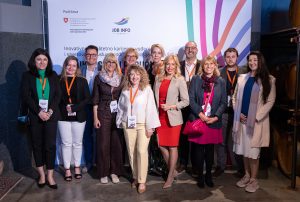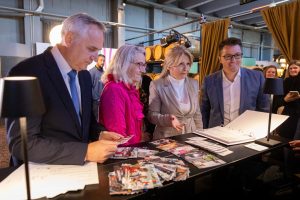New Trends in Career Guidance: Innovative Tools Empower Serbian Citizens to Shape Their Career Paths
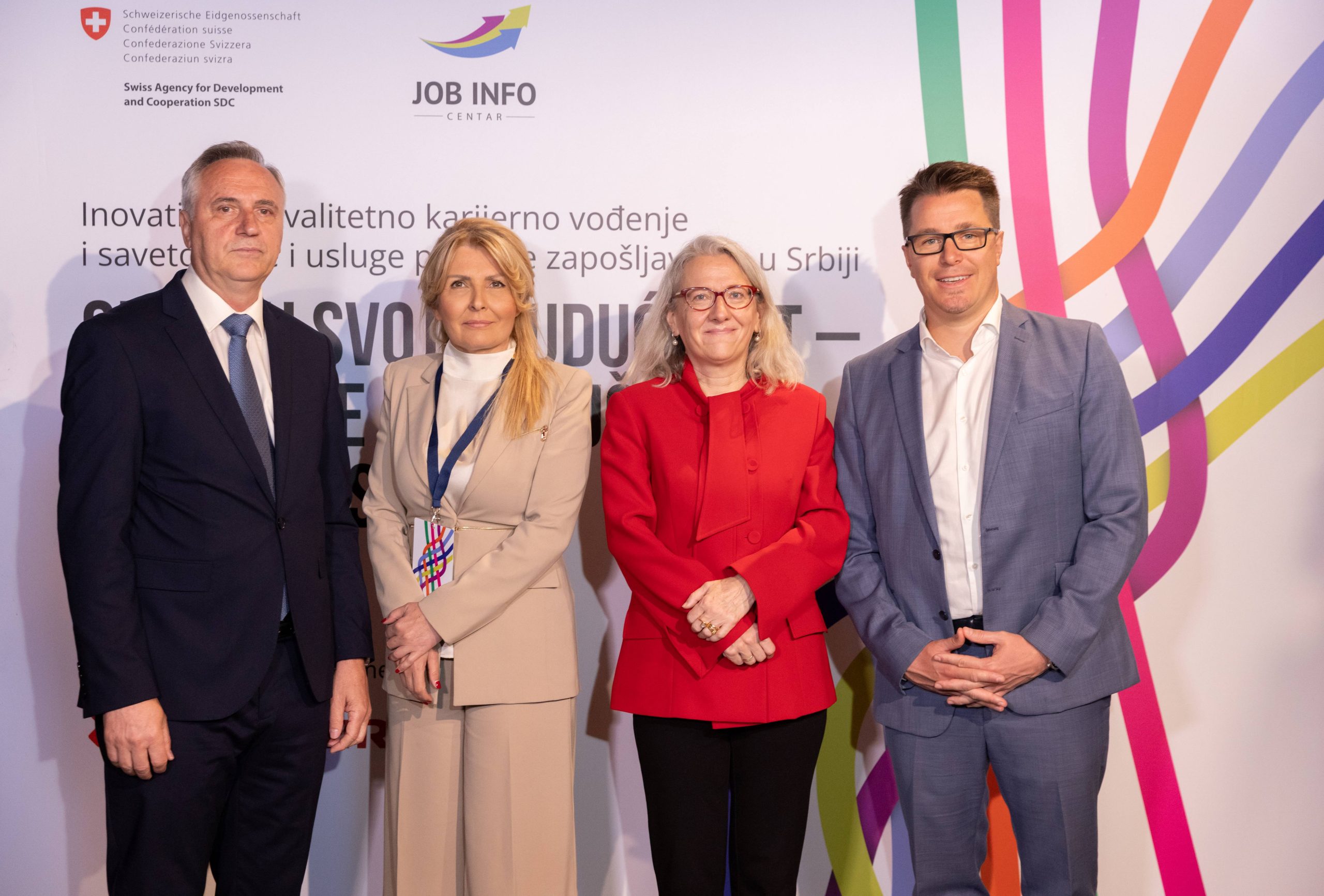
Belgrade, May 20, 2025 – Virtual and augmented reality, digital platforms, and personalized assessments are setting new standards in career guidance and employment support. Developed through the “Education to Employment” (E2E) project, these tools are already being implemented across Serbia as a key component of a modern, user-centered career guidance system.
This topic was at the heart of the national event “Innovative and Quality Career Guidance and Counseling and Employment Support Services in Serbia”, which gathered representatives of institutions, local governments, educational institutions, international partners, employers, and young people.
The event was opened by H.E. Anne Lugon-Moulin, Ambassador of Switzerland to Serbia, who emphasized the importance of partnership and joint efforts by institutions, local actors, and international partners in building an effective system that fosters youth employment and skill development.

“As the world’s most innovative country for 14 years in a row, and home to one of the oldest career guidance systems, Switzerland proudly shares its experience with Serbia—not by replicating models, but through co-creating locally adapted solutions that respond to people’s real needs. We are proud that through the Education to Employment initiative, we are witnessing the evolution of career guidance in Serbia with the introduction of new tools, digital technologies, and a user-centered approach,” stated Ambassador Lugon-Moulin.
The spotlight was also placed on the innovative tools developed within the E2E project, which—supported by the Swiss Embassy and the Government of the Republic of Serbia—contribute to the creation of sustainable, user-friendly solutions across the country.
Zoran Martinović, Assistant Minister at the Ministry of Labour, Employment, Veteran and Social Affairs, underlined the importance of collaboration in shaping employment policies. He highlighted the partnership with the E2E project as a key pillar in advancing reform processes—from legislative improvements and institutional modernization to the introduction of innovative practices in working with end users.

“What makes our cooperation with the E2E project and the integrated support from the Swiss Embassy stand out is the trust it is built on, the continuous dialogue, and the shared commitment to modernizing Serbia’s employment system. The project’s support goes beyond technical assistance—it translates into concrete and sustainable solutions that facilitate more effective policy implementation on the ground, delivering tangible benefits to the people these services are designed for,” said Martinović.
Career guidance is becoming increasingly interactive, accessible, and empowering—helping individuals gain deeper self-understanding and make informed decisions about their future. A special focus of the event was on the Job Info Centers, which have become crucial support hubs for youth in many local communities since the beginning of the initiative.
“With the support of the Swiss and Serbian governments, and in collaboration with national and local actors—from institutions and civil society organizations to local governments—we are doing more than delivering a project: we are building a system. The turning point was the opening of 11 Job Info Centers across Serbia, which prove that when career services are modern, accessible, and data-driven, individuals make better decisions—ones that reflect who they are and where they want to go,” said Oliver Streit, Team Leader of the Education to Employment project.
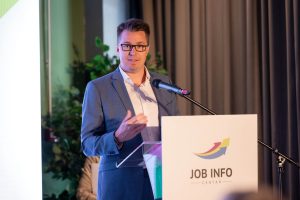
Through the exchange of experiences and presentation of concrete innovations, the event provided a valuable platform for shaping the next steps toward improving employability and developing sustainable career guidance and employment support services for all target groups.
